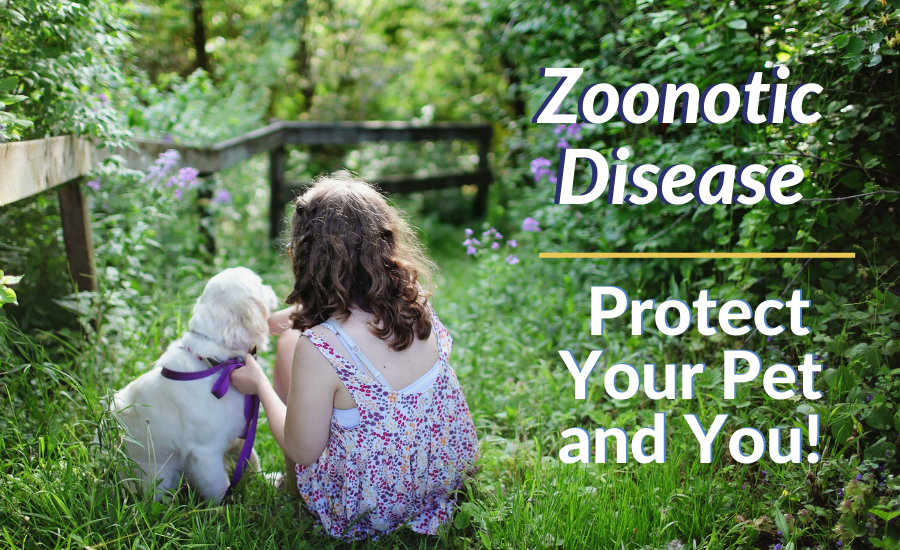While pets improve our lives in many ways, it’s essential to understand that they can impact your health. Zoonotic diseases are medical conditions that can spread from animals to humans and are a health risk all pet owners should be aware of. At Minnesota Veterinary Hospital, we take zoonotic disease very seriously.
Let’s discuss what you need to know about zoonotic diseases and how to keep you and your pets safe.
Common Zoonotic Diseases
Zoonotic diseases come in various forms, including viral, bacterial, fungal, and parasitic infections. Some of the most common zoonotic diseases transmitted by pets include
- Rabies
- Toxoplasmosis
- Salmonellosis
- Leptospirosis
- Lyme Disease
- Hookworms
- Tapeworms
- Roundworms
- Giardia
- Scabies
Usually, these conditions are spread by direct contact with bodily fluids such as blood, saliva, and urine. Some diseases can also be spread by skin-to-skin contact or contact with contaminated feces.
Understanding Your Risk
For most pet owners, the risk of contracting a zoonotic disease is fairly low. However, there are a variety of health conditions and situations that can increase your risk of disease.
People with compromised immune systems and pregnant women have an increased risk of getting sick. Additionally, young children and elderly adults typically have weakened immune systems and can be more susceptible to zoonotic diseases.
If you are undergoing medical treatment such as chemotherapy, you may need to talk to your medical team to understand your risk and take additional precautions to keep yourself safe.
Protecting You and Your Pet
While zoonotic diseases can be scary, there are a few simple steps you can do to help protect you and your pet. The most important line of protection is keeping up with your pet’s preventative care. This includes making sure their vaccines are up to date, and they are on appropriate parasite control.
Flea, tick, and heartworm prevention is essential. You should also make sure your pet is protected against internal parasites. If you have questions about your pet’s parasite prevention or other preventative health needs, please give us a call. Our team is happy to evaluate your pet’s protection plan and make recommendations based on their unique needs.
Another critical factor in preventing zoonotic disease is to practice good hygiene. Make sure you wash your hands after handling your pet and before eating. When your dog uses the bathroom, use poop bags or another waste device to pick up their mess as soon as possible and dispose of it properly. Try to avoid letting them use the bathroom in areas that kids may frequent or near your vegetable garden.
If your pet uses a litter box, make sure you clean out the litter frequently and always wash your hands after doing so.
Final Thoughts
Our team at Minnesota Veterinary Hospital is committed to keeping both you and your pet safe from disease. We hope this information has given you a better understanding of zoonotic disease and how you can keep your family safe.
If you have additional questions about zoonotic diseases or would like to schedule an appointment for your pet, please give us a call at 651-484-3331. We look forward to hearing from you and continuing to keep you and your pets healthy and safe.
Image credit: Pexels

